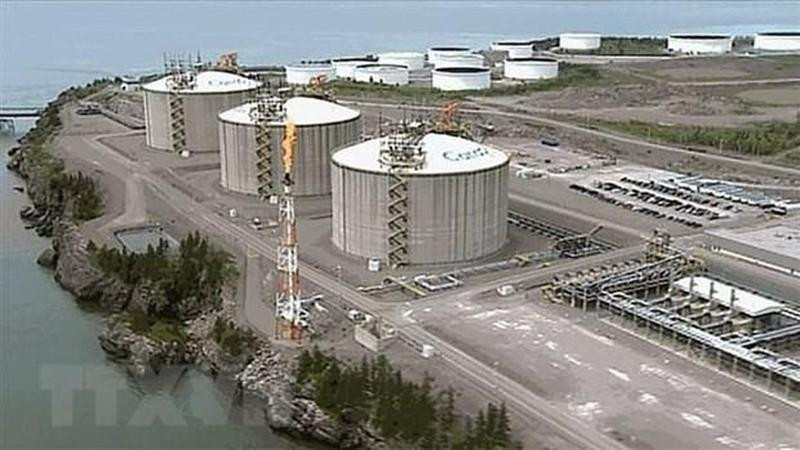However, the lack of infrastructure, as well as environmental protection issues, has been creating barriers against the plan to bring gas from “the land of maple leaf” to Europe.
Within the framework of his visit to Canada last week, German Chancellor Olaf Scholz expressed his hope that allies in the group of the world's leading industrialised countries (G7) will bring LNG to Germany, contributing to securing power supplies for Europe. However, Canada, the world's fifth largest gas producer, has not made a firm commitment to its plan to bring gas to Europe.
Since May, Ottawa has been in talks with companies to accelerate LNG projects that bring gas to Europe in the coming years. However, Prime Minister Justin Trudeau's administration is still considering whether these projects are profitable and whether the terminals can be built quickly enough to solve long-term energy supply problems in Europe or not.
Prime Minister Trudeau said natural gas would have to be shipped by pipeline from the gas fields of Western Canada to a still-unbuilt liquefaction terminal on the Atlantic coast.
According to Canada’s Government leader, it would be a costly undertaking and might not be a prudent investment in the context of Europe's commitment to a rapid transition towards a greener economy. Moreover, even if a business case could be worked out, Germany does not have the infrastructure to receive Canadian LNG.
Analysts also warned that barriers related to the environment and regulations on pipeline construction will create obstacles for LNG terminals on Canada's Atlantic coast. Germany has a net zero carbon emission target by 2045, so newly-built LNG ports are likely to become “stuck” assets beyond this point. Ottawa also wants to make sure that any new projects align with its goal of net zero emissions by 2050.
On the eve of the German Chancellor's visit to Canada, the Canadian Minister of Natural Resources announced that the best solution would be the exports of hydrogen fuel rather than LNG to Europe. Prime Minister Trudeau also confirmed that message during a joint press conference with his counterpart Scholz, in which there was no solid business case for LNG ports on the east coast.
In Stephenville town, near the site of a proposed wind farm project that will provide energy for the production of hydrogen fuel from electrolysis, Prime Ministers of Canada and Germany signed a cooperation agreement for exports of hydrogen to Europe, setting an ambitious target of exporting the fuel from eastern Canada by 2050. The parties of the agreement look forward to working closely on all necessary aspects in operating the transatlantic hydrogen fuel supply chain by 2030, with the first deliveries in 2025.
Canada and Germany also did not set a specific target on the volume of hydrogen production under the agreement. The Canadian government said existing programmes such as a 1.5 billion CAD clean fuel fund, have been used to boost hydrogen fuel production. Despite not giving a figure on the funds for the deal, the German government said it would support importers and domestic consumers. However, Canada's Minister of Natural Resources forecasted that the volume of hydrogen fuel exports will be modest in 2025.
Canada has been increasing its natural gas export capacity to the equivalent of 100,000 barrels of oil per day by the end of 2022, while Europe has been trying to reduce its dependence on fuel supplies from Russia. Prime Minister Trudeau said Canada is trying to add to the global energy supply at the moment, however, Canada's long-term goal is to become a key supplier of clean energy like hydrogen fuel.
















